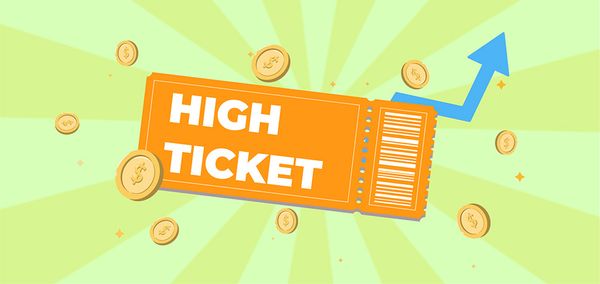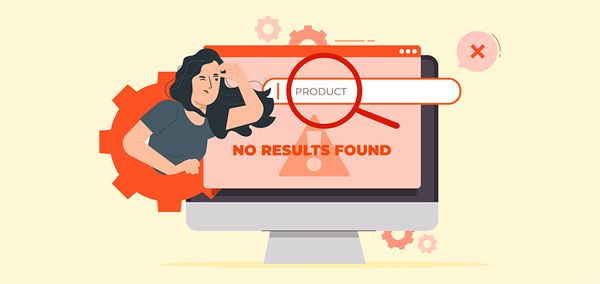Guide to CBD Dropshipping: How to Get Started

The global CBD market has seen exponential growth in recent years, driven by increasing consumer awareness and the legalization of CBD products in many regions. CBD (Cannabidiol) dropshipping presents an exciting opportunity for entrepreneurs looking to enter this booming industry with minimal upfront investment. This guide will walk you through the essentials of CBD dropshipping, from understanding the basics to setting up your business and ensuring compliance with legal regulations.
What Is CBD Dropshipping
CBD dropshipping is a business model that allows entrepreneurs to sell CBD (cannabidiol) products through an online store without holding inventory or managing shipping logistics. In this model, the store owner partners with a CBD supplier who handles the storage, packaging, and direct shipping of products to customers.
This model is particularly advantageous because it reduces the upfront costs associated with purchasing and storing inventory. It also mitigates the risk of unsold stock and simplifies the process of expanding product lines. However, it requires a careful selection of reliable suppliers to ensure product quality, timely delivery, and compliance with the legal regulations surrounding the sale of CBD products.
How to Start CBD Dropshipping
Starting a CBD dropshipping business involves several key steps. Each step is crucial for developing a successful company.
Step 1: Register Your Business
Before diving into CBD dropshipping, it's important to establish your business legally. Register your business name and structure (LLC, sole proprietorship, etc.) according to local regulations. Obtain any necessary licenses or permits to operate in the CBD industry, which may vary based on location. This involves several sub-steps:
Choose a Business Structure
Decide on a suitable business structure. Each structure has its pros and cons in terms of liability, taxation, and administrative complexity. For many small businesses, an LLC is a popular choice due to its balance of liability protection and tax flexibility.
Register Your Business Name
Choose a unique and memorable name for your business. Ensure that the name is not already in use by another entity by checking with your local business registry. Once chosen, register the business name according to your jurisdiction's requirements.
Obtain Necessary Licenses and Permits
CBD businesses are subject to stringent regulations. Research the specific licenses and permits required in your state or country. This may include a general business license, a reseller's license, and possibly special permits related to handling and selling CBD products. Compliance with local and federal laws is crucial to avoid legal issues down the line.
Open a Business Bank Account
Separate your personal and business finances by opening a business bank account. This helps in managing your finances better and is essential for legal and tax purposes.
Step 2: Choose a Reliable Program
Selecting a reputable CBD dropshipping program is important to your success. Look for suppliers or manufacturers with a proven track record of quality products, reliable fulfillment, and compliance with legal standards. Consider factors such as product variety, shipping times, and customer service responsiveness. Here are key considerations:
Research Suppliers
Identify potential CBD suppliers with a good reputation. Look for suppliers who offer high-quality, lab-tested CBD products. Ensure that the products are compliant with legal standards, containing less than 0.3% THC if operating in the United States.

|
Find Better Supplier For Products DSers Supplier Optimizer - One click to filter out the most proper suppliers for your products |
Evaluate Supplier Reliability
Assess the reliability of the suppliers. This includes checking their delivery times, return policies, and customer service. Reliable suppliers should offer prompt shipping, flexible return policies, and responsive customer support.
Compare Pricing and Profit Margins
Compare the pricing of products from different suppliers. Ensure that the cost allows for a reasonable profit margin after accounting for all expenses, including marketing, shipping, and transaction fees.
Review Dropshipping Program Features
Look for dropshipping programs that offer automated order processing, real-time inventory updates, and integration with popular e-commerce platforms like Shopify or WooCommerce.
Step 3: Use a Specific Payment Processor
Due to the regulatory complexities surrounding CBD products, it's essential to partner with a payment processor that supports CBD transactions. Choose a provider experienced in handling high-risk industries and compliant with financial regulations. This gives your customers a smooth and secure payment process.

|
Adapt Your Product Prices Automatically DSers Automatic Pricing - Pre-set Pricing Rule to mark-up your product price automatically |
Understand the Payment Processing Challenges
Many standard payment processors, like PayPal and Stripe, do not support CBD transactions due to the legal complexities. Therefore, it's essential to find a payment processor that explicitly supports CBD businesses.
Research CBD-Friendly Payment Processors
Look for payment processors that specialize in high-risk industries, including CBD. Examples include Square, PaymentCloud, and PayKings. Evaluate their fees, processing times, and integration capabilities with your e-commerce platform.
Ensure Compliance with Legal Requirements
Ensure that the payment processor complies with all relevant regulations and provides secure payment processing. This includes PCI compliance and strong encryption for transaction data.
Review Contract Terms
Carefully review the terms and conditions of the payment processor. Look out for hidden fees, long-term commitments, and any clauses that might affect your business operations.

|
Manage Multiple Stores In One Account Multiple Stores Management - Link and manage multiple stores on different platforms in one place |
Step 4: Build Your Online Store
A professional and user-friendly online store is important for attracting and retaining customers. Consider the following steps:
Choose an E-commerce Platform
Select a platform such as Shopify, WooCommerce, or BigCommerce that supports CBD sales and integrates with your chosen dropshipping program.
Design a Website
Create a visually appealing website that reflects your brand identity. Highlight product benefits, usage instructions, and customer testimonials to build trust and educate consumers.
SEO Optimization
Optimize your website for search engines to improve visibility and attract organic traffic. Use relevant keywords (e.g., "CBD oil," "CBD gummies") and publish informative content related to CBD health benefits and industry trends.
Secure Payment Gateways
Integrate secure payment gateways that comply with CBD industry regulations. Multiple payment options can adapt to various customer preferences and enhance checkout convenience.
Is CBD Dropshipping Legal?
The legality of CBD dropshipping is complex and varies significantly depending on the region, the source of the CBD, and its THC content. In the United States, the 2018 Farm Bill legalized the cultivation of industrial hemp, defined as cannabis containing less than 0.3% THC. This means that CBD derived from industrial hemp is federally legal. However, individual states have the authority to regulate or prohibit the sale and production of hemp-derived CBD products. Therefore, while CBD may be federally legal, certain states like Idaho and South Dakota have stringent laws that can make the sale of CBD products illegal.
To ensure legality, CBD products must comply with THC content regulations. In the U.S., this means containing less than 0.3% THC. In the European Union, the THC limit is generally around 0.2%. Ensuring that products meet these standards is crucial for operating legally.
Internationally, the legality of CBD varies widely. Some countries, such as Canada and Uruguay, have broadly legalized CBD, while others maintain strict prohibitions. Within the European Union, regulations can vary by member state, despite overarching guidelines. In many parts of Asia and Africa, CBD remains illegal, and importing or selling CBD products could result in severe penalties.
In addition to THC content, CBD products must adhere to strict labeling and marketing regulations. For example, the U.S. Food and Drug Administration (FDA) prohibits making unsubstantiated health claims about CBD. Mislabeling products or making false claims can lead to legal repercussions.
The Pros and Cons of CBD Dropshipping
- Low Front-end Investment: One of the most significant advantages of CBD dropshipping is the minimal upfront capital required. You don't need to purchase and store products.
- Reduced Operational Hassles: With dropshipping, you eliminate the complexities associated with managing inventory, packaging, and shipping. Your suppliers handle these tasks, freeing up your time to focus on marketing, customer service, and business growth.
- Flexibility in Product Offering: Dropshipping allows you to offer a wide variety of CBD products without the need to stock them yourself.
- Scalability: The dropshipping model supports easy scalability. As your business grows, you can add new products and cater to more customers without the need for significant additional investments.
- Lower Risk: By not holding inventory, you mitigate the risk of unsold stock and reduce financial losses.
- Global Reach: Dropshipping enables you to serve customers worldwide. Since your suppliers handle shipping, you can tap into international markets without dealing with the logistics of cross-border shipping.
- Legal and Regulatory Challenges: Navigating the complex legal landscape of CBD products is challenging. Compliance with varying federal, state, and international laws requires constant attention.
- Quality Control: Reliance on suppliers means less control over product quality. Poor-quality products can harm the business’s reputation and customer satisfaction.
- Supplier Dependence: The business heavily depends on the reliability of suppliers for timely shipping and product availability. Any issues with suppliers can directly impact the business.
- Competitive Market: The CBD market is highly competitive, making it challenging to stand out and attract customers. Effective marketing and differentiation are crucial for success.
Conclusion
Starting a CBD dropshipping business requires careful planning, adherence to legal guidelines, and strategic execution. By following the steps outlined in this guide and staying informed about industry developments, you can establish a successful and compliant CBD dropshipping venture.
Need more information about dropshipping? Explore DSers now.












 Company
Company
 Why Choose DSers
Why Choose DSers
 Blog
Blog
 Help Center
Help Center




 Live Chat
Live Chat